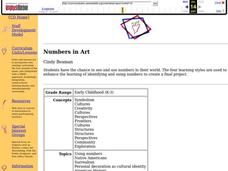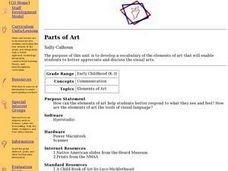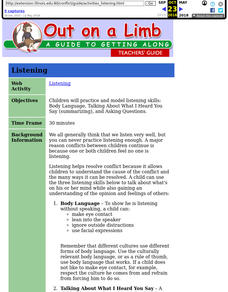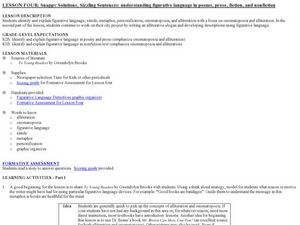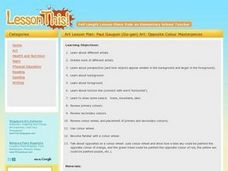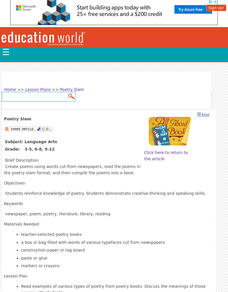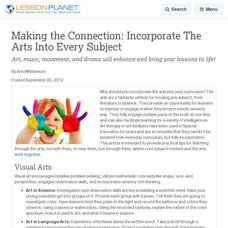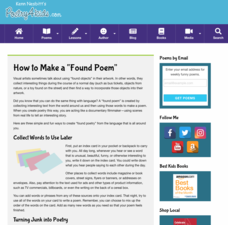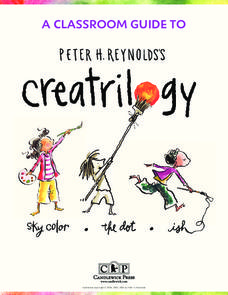Curated OER
Numbers In Art
Help develop an awareness of the natural and manufactured environment and relate the subject matter to young learners' lives. The interpretation of the meaning of art is reinforced and its application to self and other audiences is...
Curated OER
Parts of Art
Young scholars define and use new vocabulary associated with the elements of art. As a class, they brainstorm different ways in which we communicate with one another. In groups, they view different pieces of art from the Native American...
Curated OER
A Guide to Getting Along: Listening
Here is an effective way to have your charges practice and model important listening skills. After a short review of effective active listening concepts, such as using body language, summarizing what the other person said, and asking...
Curated OER
Enough to Make Your Head Spin
Students investigate the world of nonverbal communication by analyzing body language around the world. In this cultural communication lesson plan, students research the Bulgarian language and how we could easily misinterpret their...
Curated OER
Snappy Solutions, Sizzling Sentences
An examination of the figurative language in Gwendolyn Brooks’ To Young Readers challenges your writers to think about the richness of language. Ask your class why Brooks says, “Good books are bandages.” This discussion of alliteration,...
Curated OER
Boombox Classroom: Music and Language
In this music and speech worksheet, students find similarities between language and music. Students also tell about their own language. Students also may write the 7 music letters.
Curated OER
Ripped Paper Art - Snowmen, Mountains and Evergreens
Young scholars discover depth in photographs or paintings by creating a picture from scrap paper. In this art analysis lesson, students practice creating depth by placing different elements higher or lower on a picture. Young...
Curated OER
Paul Gauguin Art: Opposite Colour Masterpieces
Students discover new art techniques by examining the work of Paul Gauguin and his use of opposite colors. In this art analysis lesson, students investigate the different perspectives and colors used in classic post impressionist...
Curated OER
"Declaration of Independence" From Plagiarism
So, what does the Declaration of Independence even mean? Learners of all ages paraphrase the Declaration of Independence in modern terms. They work as a group or class to paraphrase the language of the Declaration of Independence. There...
Curated OER
ELA Unit Planning Template Style One
Work with your department or on your own to create organized unit plans that connect to all parts of the Common Core standards. The three-page template includes space to summarize the unit, list standards for each category of the ELA...
Curated OER
Poetry Slam!
Create poems without writing! Young poets create poems using words cut from newspapers, read their poems aloud, and compile them in a book. This lesson allows the teacher to view each learner's creative process and assess their current...
Curated OER
Collage to Writing
Practice expository and creative writing with your class. Pupils use magazines to find pictures, cut them out, and create a collage. This work of art is then used as a writing prompt. They describe the collage in either a creative or...
Curated OER
Making the Connection: Incorporate The Arts Into Every Subject
Art, music, movement, and drama will enhance and bring your lessons to life!
Curated OER
A Fair Trade
Students examine a piece of art to find objects and symbols used by the artist. In this visual art lesson, students look at Jaun Quick-to-See Smith's, "Trade Canoe for Don Quixote." They look for symbols and items that show the artists...
Denver Art Museum
Alien Beauty
"Beauty is in the eye of the beholder," is a popular phrase in our society. The instructional activity here puts the phrase to the test as pupils explore what truly is beautiful through a study of some Japanese folk art. A careful...
National External Diploma Program Council
Capitalization Review
Using correct grammar is a capital idea! Elementary readers review the rules of capitalization, including proper nouns, abbreviations of organizations, and holidays, before correcting the errors in two sets of sentences.
Poetry4kids
How to Create a “Found Poem”
Writers compose an original found poem by searching for words that inspire them. Words are taken from everyday conversation, books, cut from magazines, the mail, or an already written poem.
Curated OER
My Own Backyard
Students explore and react to the painting The Road to Santa Fe. For this interacting with art lesson, students locate various objects in the painting. Students copy the angle of objects by using their bodies. Students...
K12 Reader
What is Culture?
What makes up a society? Read a passage about culture and community and answer five reading comprehension questions.
Denver Art Museum
Descriptive Haiku
Even though this is technically an art activity, haiku poetry is actually the main focus! Learners view photographs of Japanese tea caddies. They list five descriptive words for the caddies, then write haiku poems using the caddies as...
Teach-nology
Author’s Purpose: Inform
Why does an author write an informative article? Learners examine passages of a short reading on Spain and determine what the author wanted to inform the reader about.
August House
The Stolen Smell
Some smells are better than others! Explore your sense of smell with a series of activities based on the Peruvian folktale, The Stolen Smell. With exercises about phonics, counting, cooking, art, and drama, the lesson is a...
Indian Land Tenure Foundation
Relationships to Places
Young historians take a look at how the Indian tribes of California promoted a mindful relationship between people and the land. They begin to understand how the Indians were champions of conservation, and at preserving the natural...
Candlewick Press
A Classroom Guide to Peter H. Reynolds's Creatrilogy
Help young readers find, identify, and use their voices with a set of empowering activities based on Peter H. Reynolds' trilogy of books. Sky Color, Ish, and The Dot focus on recognizing moods and treating each other...
Other popular searches
- 5th Grade Language Arts
- 3rd Grade Language Arts
- 4th Grade Language Arts
- Second Grade Language Arts
- English Language Arts
- 1st Grade Language Arts
- Kindergarten Language Arts
- Language Arts Jeopardy Game
- First Grade Language Arts
- Language Arts School Projects
- Language Arts Lesson Plans
- Language Arts Games
